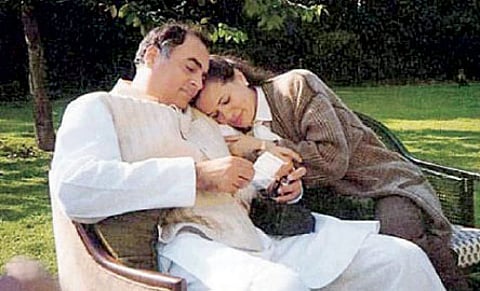

Former Home Secretary R D Pradhan’s My Years with Rajiv and Sonia takes the reader on a trip down memory lane. It recounts the events when former Prime Minister Rajiv Gandhi (RG) had won on a largely sympathy wave with an awesome single-party majority (Congress had grabbed 414 seats) after a record turnout in December 1984. Yet, the brute majority in Parliament did not prevent daunting challenges that erupted soon from buffeting the regime of RG with a certain ferocity and regularity causing public disenchantment with the government, leading to his defeat by 1989 and finally to his violent death in 1991. Reading through the account, one is reminded of the intractable and ungovernable nature of India’s politics, recurring occurrences of intense instability and volatility that verges on violence.
By the mid-1980s, from the severe secessionist movement in Punjab, to the student-led Assam agitation and virulent insurgencies in other parts of the north-east, the country was wracked by centrifugal tendencies. While separatism was tearing asunder the country from below, the ego clashes at the top were chipping at the political scaffolding from above. Momentous events such as the Bhopal gas tragedy, the Shah Bano case, the Bofors scandal dented RG’s image beyond repair.
Most of the historical facts discussed are well known, yet, Pradhan weaves together an enthralling insider account of major decisions taken by the administration, at times revealing officially unacknowledged facets.
The most revealing sections are on how the administration tackled the Punjab insurgency by combining legal with illegal means and the setback such a combination encountered. Pradhan admits “some unorthodox means were adopted to start a dialogue with the Sikh militants.” He highlights how supercop K P S Gill secretly met incarcerated Sikh militant student leaders late in the night. Without mentioning the third-degree treatment meted out to such separatists, Pradhan reveals how “the Intelligence Bureau would hand over to me the tapes of conversations recorded during talks between Gill and the student leaders.” The most touching section of the book is on the events leading up to the brutal assassination of RG. Pradhan dishes out solid facts to argue that RG’s assassination could have been prevented if the security protocol was fully adhered to. He believes the assassination was partly an insider job given the presence of a mole.
Although he is an outright Rajiv and Sonia loyalist, yet Pradhan candidly points out serious flaws in RG’s personality, like his furious temper during high-level meetings, his whimsical tendency to sack or transfer senior bureaucrats in public, and the most dangerous of all, his “periodic urge to throw caution (meaning security cover) to the winds!” Pradhan provides several instances of how RG would give the slip to the security cover at times rashly with grave risk to his life. Like all Shakespearan heroes, perhaps, it was this major flaw in RG’s personality that ultimately cost him his life. The book reminds us that absolute majorities in Parliament are no guarantee for political success. The Modi administration would benefit a great deal from such a historical lesson.